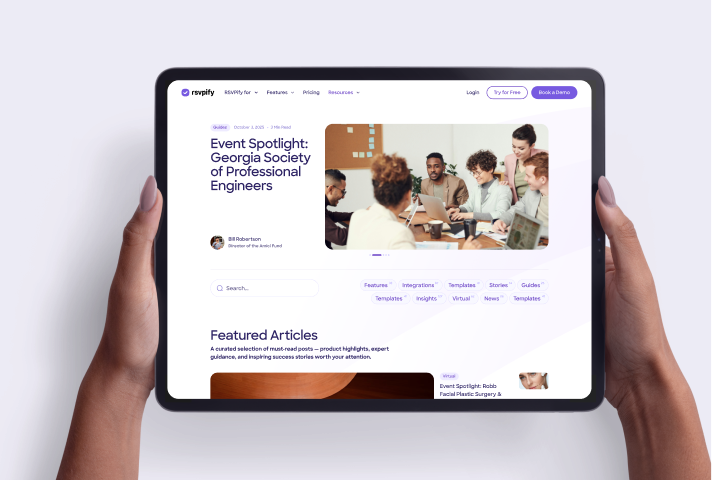During the first few months of 2021, attention was rightly paid to the remarkable development of vaccine programs worldwide to fight the coronavirus pandemic. After Pfizer, Moderna, and others achieved the unthinkable by developing effective COVID-19 vaccines in under a year's time, hundreds of millions of people worldwide have already been fortunate enough to receive their doses. While billions more still await their vaccines, people tired of the pandemic worldwide see hope for a return to normalcy approaching.
But just getting the vaccines to people was the start. Now, questions have arisen worldwide about how to start offering a return to normal for vaccinated individuals. The key to this return to normal is a foolproof system of tracking and verifying vaccination histories. That's where the COVID vaccine passport idea has come in. So what should event profs know about vaccine passports? How they might help bring back the in-person weddings, bar mitzvahs, corporate retreats, reunions, and other events?
Just as a traditional passport reveals your citizenship to allow entries into foreign countries (or re-entry to your own), a COVID vaccine passport would allow government officials to verify vaccination histories to help keep the spread of COVID low as herd immunity is built worldwide. This idea is not new, and portable vaccine records have a long history. They are used for allowing schools to safely enroll children each year, as well as for health care workers who must supply records to travel through tropical or disease-prone regions of the world.
Like many other things over the past year, this idea is not without controversy. There have been heated debates about the legality of requiring people to receive vaccines. Additionally, people have bristled at requiring them to carry identification information that displays their vaccine record to anyone who may require them (perhaps to attend a conference or a wedding at an event venue). Advocates for individual freedom argue that this would be an overreach of government authority. Meanwhile, supporters of vaccine passports insist that this is the only way to help return to normalcy quickly, without risking another surge among people who have yet to receive their shots.
Why the push for vaccine passports in some form? Well, here are just a few of the industries that could benefit from adoption of the system:
Part of the ongoing debate around vaccine passports is which format would be most convenient and secure. Advances in digital technology have led to discussions about a variety of options, including:
Whatever the format, vaccine passports must include safety features that protect personal and private health information. Laws like HIPPA in the United States have stringent restrictions on the sharing of health information. Governments face challenges in finding an option that does not violate these privacy guidelines.
Here at RSVPify, we are well aware of how key vaccine passports are to the return of in-person events. That's why we have rolled out a new vaccine passport feature that can allow you to screen guests for vaccinations while the world debates a standard solution to the issue. With RSVPify's vaccine passport option:
About the Author
Get the latest product updates, event planning tips, and industry insights — straight to your inbox.
You can unsubscribe at any time. Your email will only be used to send RSVPify updates and will never be shared.
